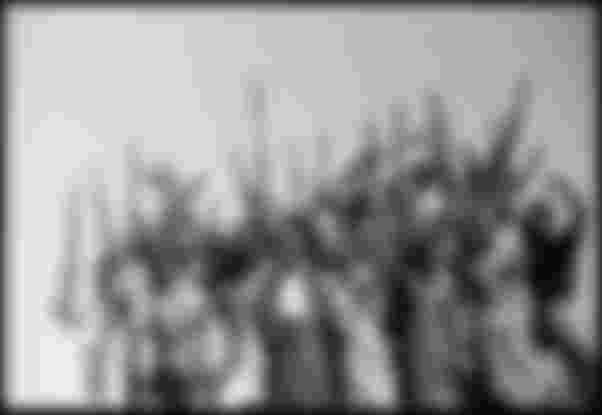In general, many of us think that people who speak Bengali live, so the name of this country is Bangladesh. But is that all? Not at all. On the contrary, before the acquisition of this name, Bangladesh had to travel a long way.
Bangladesh is found in the writings of the ancient Greeks and Latin. From the first millennium BC onwards, Greek and Latin writings refer to a country or kingdom and people called 'Gangaridai', which may mean 'rich by the Ganges' or 'Gangariddhi' or 'whose heart is in the Ganges' or 'Gangahridi'. Instead of 'Gangaridai', the words 'Gangaridai', 'Gangaridum' and 'Gangarides' were also found in the variant.
The Greek traveler Megasthenes mentions this kingdom in his book 'Indica'. According to him, the spread of this state was in the Bengal region of the Indian subcontinent or across present day Bangladesh and West Bengal in India. Many Greek and Latin historians believe that Alexander withdrew from his expedition to India for a number of reasons, most notably his fear of the Gangaridai attack. He feared that attacking Gangaridai would have dire consequences.

A possible map of Gangaridai; Image Source: Google
Historians Ptolemy and Periplus mention in Greek history that the residence of the king of Gangaridai was in the Ganges. However, the Greek writers did not explicitly mention the exact location of the Ganges, the capital of the Gangaridai king.
Dr. Gaurishankar Dey and Professor Shuvrodeep Dey in their book 'Prasanga: Pratna-Prantra Chandraketugarh' have said that Chandraketugarh, an archeological site in the North 24 Parganas district of West Bengal, is probably the capital of the famous ancient port-state 'Gangaridai' or 'Ganges' port. Again, some historians of Bangladesh think that the Ganges or Gangaridai was the residence of the king on the banks of the river Kumar in Khulna. They imagine the present Sundarbans deer ghat as Ganges.
So there is still plenty of room for doubt about Gangaridai and the Ganges, so there could be controversy. Let's take a look at how this Gangaridai came to be known as 'Bangadesh' or 'Banga'.
In the book 'History of Bengalis' Dr. Mohammad Hannan has analyzed the origin of the name 'Banga' from the book 'Riaz-us-Salatin' written by Ghulam Hossain Salim Zaid Puri in 1768-1788. There, in the context of the history of the name of Bengal, the aspect of Muslim thought and consciousness has been revealed. It has been said that in the aftermath of the Flood, Prophet Noah (peace be upon him), his wife and children and 80 men and women, by the command of Allah, spread to different parts of the world, began to reproduce there, and their descendants rearranged the earth.
One of Noah's sons, Ham, was engaged in procreation in Asia. One of his sons named 'Hindustan' after Hind, 'Sindhu' after Sindh, and 'Bangadesh' after Bengal.
There is also a mythological theory behind the naming of Bengal. According to mythology, the name of Bengal comes from the name of the son of King Bali. It is claimed that one of the sons of Raja Bali ruled West Bengal, Khulna and Barisal. Another son ruled Bengal, Dhaka, Mymensingh and Tripura. And the last son Pundra ruled North Bengal and Assam. According to the name of this son, the territories under their rule got the names of Anga, Banga and Pundra.
In other words, there is considerable controversy over the naming of Bengal. Now we can try to unravel how the name 'Bangla' came from Bengal. Dhaka University Professor of History has recently given an explanation in this regard. Syed Anwar Hossain. According to him, the word 'Bangla' is pronounced from 'Banga', which was originally a Sanskrit word. The Aryans used to call the region 'Bengal'. Later the inhabitants of the region added the Persian suffix 'al' to 'Banga', so that the new form of the word became 'Bangal' or 'Bangalah'
In this regard, Syed Anwar Hossain has accepted the history narrated by the historian Abul Fazl (author of Ain-e-Akbari) and said that during the Muslim rule, especially during the Sultanate period from 1336 to 1576 and after the Mughals occupied Bengal in 1576, the region came to be known as Bangal or Bangalah.
Abul Fazl wrote in Ain-i-Akbari that the word Banga means wetland. Bangalah has been added to it. Al means not only the ala of farmland, it was also used in the sense of small and big dams. In ancient times, kings used to build huge gardens 10 yards wide and 20 yards high. Even today in many places of greater Barisal and Faridpur, the word 'Bangla' is used to mean a dam on a swamp. Bengal is a land of floods and rains, so Al (Dam) is closely associated with Bengal.
Whatever it is, later on, when different kings were in power, they gave different names to this Bengal. For example, the last independent Nawab of Bengal, Sirajuddaula, named the empire consisting of several provinces like Bengal, Bihar, Orissa and Assam as 'Bengal'.
During the British rule, the region was called 'Bengal Presidency'. Then, during the Partition of Bengal in 1905, there was an administrative division in the whole of Bengal. The western part of Bengal became 'West Bengal' and the eastern part became 'East Bengal'.

Bangabandhu opposed the naming of 'East Pakistan'.
After the partition of the country in 1947, when Bangladesh became part of Pakistan, a new controversy arose over its naming. The rulers of West Pakistan went against the will of the people of Bengal and tried to name it 'East Pakistan'. Until 1954, although the name 'East Bengal' was in vogue on paper, the naming of 'East Pakistan' continued. In this context, Bangabandhu Sheikh Mujibur Rahman said in his speech to the Pakistan Constituent Assembly on 25 August 1955 in Karachi
We have repeatedly demanded that you should use [East] Bengali instead of [East] Pakistan. The word 'Bangla' has a history, It has a tradition of its own ... and if East Pakistan has to be named, then the people of Bengal have to check their public opinion.
But even then, on 14 October 1955, the name 'East Bengal' was officially changed to 'East Pakistan'.
From the mid-1960s, the concept of 'Bengali nationalism' began to take shape. Then came 1969, the Ayub fall movement began. At that time a slogan was regularly given in mass uprisings: "Brave Bengalis take up arms, make Bangladesh independent." In other words, many people started considering this region as 'Bangladesh'.
The demand for naming 'Bangladesh' was finalized after a speech by President Yahya Khan on 28 November 1969. The main reasoning of those who wanted to change the name 'East Pakistan' was that since one unit in West Pakistan had disbanded and the former provincial names of Sindh, Balochistan, Punjab and North-West Frontier Region were being revived as administrative units, it was the earliest of Pakistan's five provinces. It would no longer be appropriate to name the province 'East Pakistan'.
Then came the discussion meeting organized on the occasion of the 6th death anniversary of Hussain Shaheed Suhrawardy on 5th December. There the leaders of the time proposed different names for the region. Such as: 'Independent East Bengal', 'Bangla', 'Bengal', 'East Bengal', 'Banga', 'Banga Desh', and 'Bangladesh'. Most of the leaders and activists including Bangabandhu Sheikh Mujibur Rahman were in favor of the name 'Bangladesh'. In the end, everyone unanimously accepted the name 'Bangladesh' proposed by Bangabandhu.
Bangabandhu's declaration is quoted in the book 'Prison Diary'. In the discussion that day, Bangabandhu said,
I am announcing from today that the name of the eastern province of Pakistan will be 'Bangladesh' instead of 'East Pakistan'. "

On 5 December 1969, Bangabandhu finalized the name 'Bangladesh'.
The next day, on 6 December, news of the naming of 'Bangladesh' was published in various newspapers, and Ataur Rahman Khan made a statement in support of Bangabandhu's naming in the 'Pakistan Observer'. Besides, Maulana Bhasani, the spiritual guru of NAP, in a public meeting on December 7, supported the renaming of East Pakistan, saying that from a historical point of view, naming 'Bangladesh' would be right and proper. He also argues that since one unit has broken down, the name 'Bangladesh' should be revived. From then on, even if 'East Pakistan' was to be written in the documents, no one would utter 'East Pakistan' orally. Everyone used to say 'Bangladesh'.
However, the opposition to the name 'Bangladesh' did not diminish. In 1969, when Bengali politicians were vocal in demanding the naming of 'Bangladesh', Jamaat-e-Islami opposed it. On 31 December 1979, the then US Consulate in Dhaka sent an airgram message to Washington informing it of Jamaat's opposition to naming this 'Bangladesh'. According to the US Consulate, Sheikh Mujibur Rahman, Maulana Bhasani, Ataur Rahman Khan and other Bengali politicians have unanimously demanded the naming of 'Bangladesh'. And Jamaat has pointed to Bengali politicians and criticized their role in introducing Bengali language instead of Urdu.
Besides, the statement of Ataur Rahman Khan in the Pakistan Observer in favor of naming 'Bangladesh' was followed by a statement of Jamaat against 'Bangladesh' and Bengali language on 15 December. There, Mahmud Azam Farooqi, a former MPA and then joint secretary of Jamaat-e-Islami in Karachi, alleged that the demand for naming 'Bangladesh' was a threat to Pakistan's integrity and unity and contained a patriotic tone of separatism. Jamaat leader Farooqi further argued,
They opposed Urdu. However, Urdu was adopted as the national language 'unanimously'. The role of those leaders has widened the divide between the two parts of Pakistan."
Needless to say, he meant "political leaders of different parties" to the East Pakistanis, and the US Consulate specifically informed Washington.
The name 'Bangladesh' was also used in the declaration of independence in 1971. Bangabandhu's EPR radio message and later the declaration of independence from Kalurghat also mentioned the name of the independent country 'Bangladesh'. The later declaration of independence by the Mujibnagar government also said that the name of this country was 'Bangladesh'.
On 16 December 1971, Bangladesh was liberated from the enemy and won. Then on November 4, 1972, when the first constitution was drafted and adopted, the country's constitutional name was given to 'Bangladesh'.
Besides, in nineteenth century literature undivided Bengal was called "Bangadesh" or "Bangladesh".
The word "Bangadesh" is mentioned in Bankimchandra's literature. The name "Bangladesh" has also been mentioned in Ray's films.
On the other hand, Rabindranath Tagore called Bengali "Sonar Bangla" and Jibanananda Das called it "Ruposhi Bangla".


